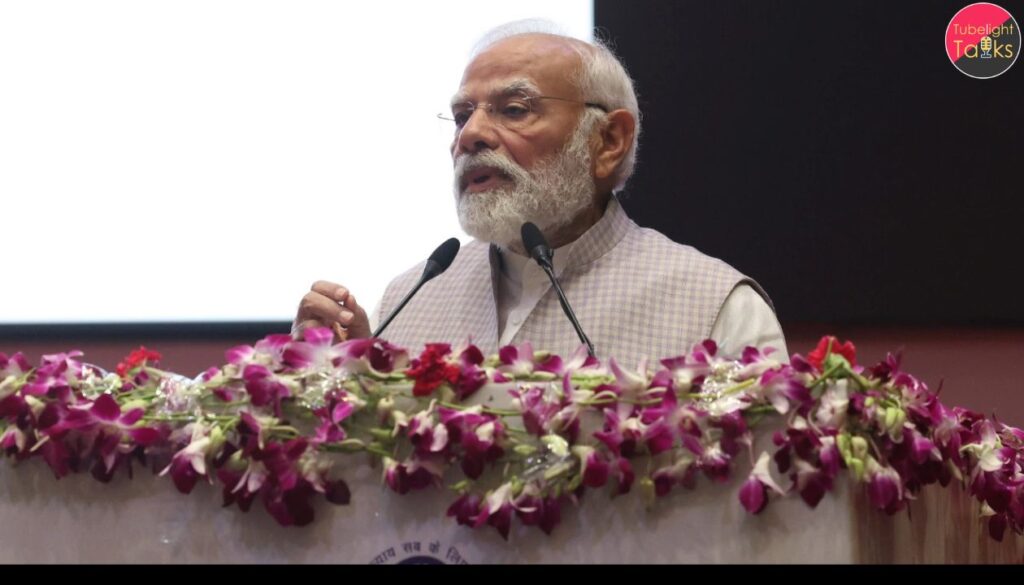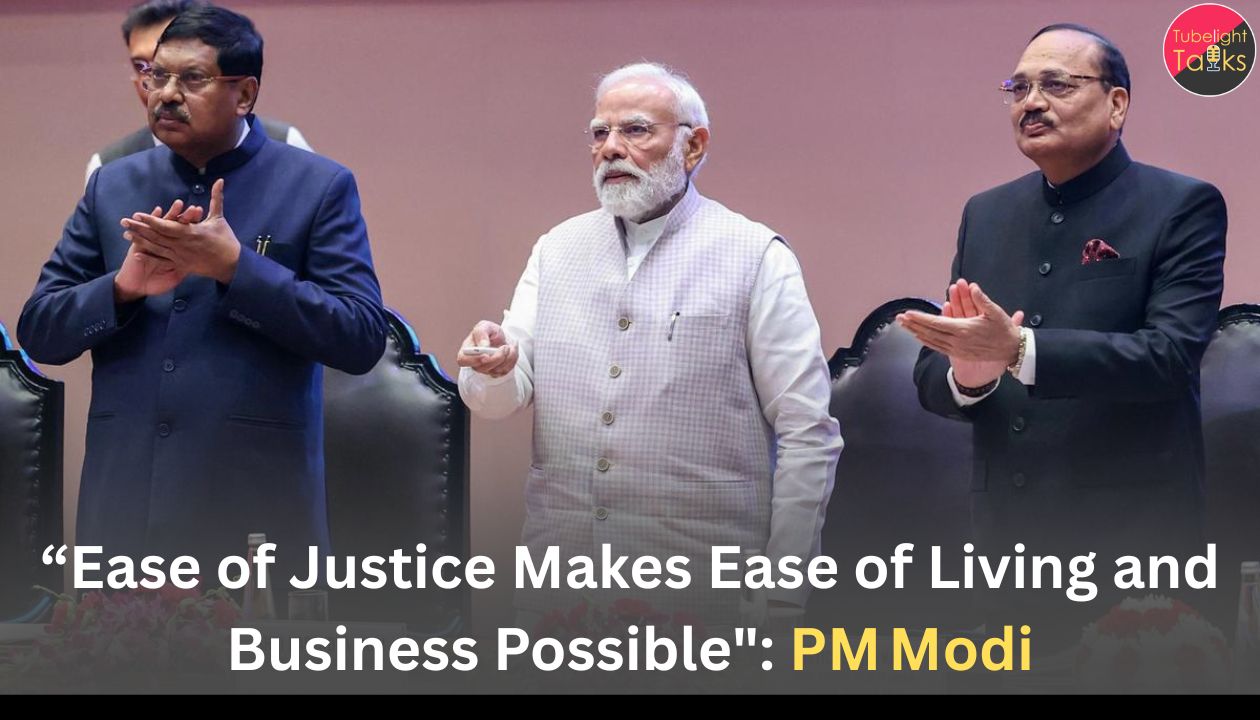“Ease of Justice Makes Ease of Living and Business Possible”: PM Modi
Ease of Justice: At the 20th National Conference on “Strengthening Legal Aid Delivery Mechanisms” held in New Delhi, Prime Minister Modi underscored the pivotal role of justice in ensuring both ease of living and ease of doing business. He framed “ease of justice” as the essential third pillar that empowers citizens and enterprises alike, beyond infrastructure and business reforms.
Key Highlights of His Address
- Justice must be accessible to all, regardless of social or financial background.
- “Ease of Living” and “Ease of Doing Business” can thrive only when “Ease of Justice” is ensured.
- Legal aid mechanisms from the national to the local level (like the National Legal Services Authority, DLSAs) act as bridges between the judiciary and people.
- The government has removed over 40,000 compliances, decriminalised more than 3,400 legal sections under the Jan Vishwas Act and repealed over 1,500 outdated laws to support ease.
- Technology and language are pivotal: He emphasised that justice must be served in languages people understand, with documents and judgments translated into local languages.
Why This Emphasis Matters
- Citizens & Justice: If ordinary people cannot navigate the legal system or obtain timely justice, their quality of life and ability to engage in business suffer.
- Business & Justice: For businesses to operate freely and with confidence, legal frameworks must be efficient, predictable and accessible.
- Holistic Reform: The government’s push suggests that economic reforms alone are insufficient without the legal‑justice ecosystem evolving in tandem.

What’s Being Done
- Launch of the Community Mediation Training Module to build grassroots dispute‑resolution capacity.
- Expansion of the e‑Courts mission – virtual hearings, electronic summons, digital infrastructure for courts.
- Translation of thousands of judgments into 18 Indian languages by the Supreme Court, with work extending to High Courts and district courts.
Challenges Ahead
- Strengthening judicial infrastructure across remote districts remains a challenge.
- Ensuring legal awareness among vulnerable groups so they know their rights and remedies.
- Ensuring that reforms reach last‑mile courts, and legal aid mechanisms are adequately funded and staffed.
Business reforms must walk hand‑in‑hand with moral foundations
According to Sant Rampal Ji Maharaj, true justice extends beyond courts — it is rooted in righteousness, equality and compassion.
“When truth is upheld and every soul receives its due, society flourishes.”
PM Modi’s call for “ease of justice” resonates with this spiritual vision, reminding that infrastructures and business reforms must walk hand‑in‑hand with moral foundations. Ensuring justice for the weak and marginalized is also a spiritual duty, one that aligns with the highest goal of human upliftment as taught by Saint Rampal Ji Maharaj.
Call to Action: For Citizens & Stakeholders
- Citizens: Be aware of your legal rights; seek help through legal aid bodies if needed.
- Law Students & Young Professionals: Engage in community outreach, help legal literacy efforts, and contribute to mediation initiatives.
- Businesses: Support transparent and fair legal practices, advocate for dispute‑resolution mechanisms that reduce uncertainty.
- Government & Judiciary: Continue to invest in digitalisation, language access, and capacity‑building at the grassroots.
Also Read: Justice Surya Kant to Become the Next Chief Justice of India
FAQs: Ease of Justice for Better Business
Q1. What did PM Modi mean by “Ease of Justice”?
He meant that access to timely, affordable and understandable justice is as important for citizens and business as ease of living and doing business.
Q2. How is the government promoting this idea?
Through legal aid programs, mediation modules, e‑Court expansion, translation of judgments into local languages, and removal of procedural burdens.
Q3. Why does this matter for business?
Legal clarity, quicker dispute resolution and accessible justice reduce risk for businesses and promote investment.
Q4. What is the role of language and technology?
Language makes laws understandable; technology makes courts accessible and efficient. Both are crucial for justice delivery.
Q5. What should an ordinary citizen do to benefit?
Utilise legal aid bodies, attend Lok Adalats, seek mediation, and tap into digital/judgement resources.











Discussion (0)